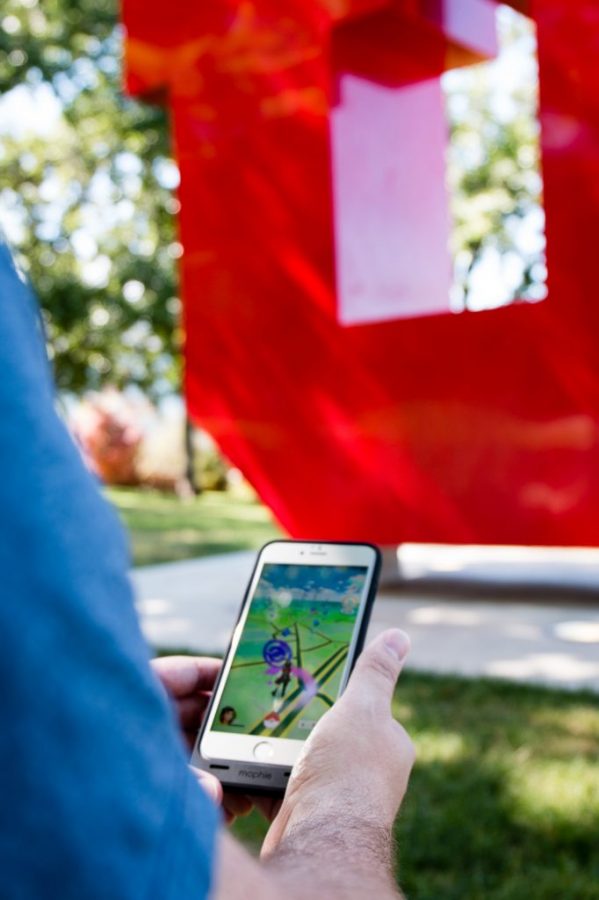The “Pokémon Go” craze is giving people yet another reason to bury their faces in their phones. Since the game launched a little over two weeks ago, millions of people are getting a taste of futuristic augmented-reality technology. Although many people would agree the game is fun, it is raising a lot of questions about whether the game’s location and mapping features are luring players into dangerous situations.
In Pokémon Go, players use their smartphones to capture virtual creatures that appear to be hovering right in front of them. The game also involves collecting items such as Pokéballs, which are needed to catch the virtual creatures, and are found at Poké Stops. Once enough creatures are captured they are then used to fight other players creatures at what are called Gyms.
Pokémon Go passed even Tinder and Twitter as the most downloaded app since July 6, 2016, its first day of availability in the U.S. A recent study has shown that the average time per day spent on the Pokémon Go app is 43 minutes. The next highest app on the list was WhatsApp at 30 minutes, followed by Instagram (25 minutes), Snapchat (23 minutes), and Facebook (22 minutes).
For the game to work, it uses features built into smartphones, such as the camera and the GPS, to create a digital map and determines the locations of Poké Stops and creatures to visit.
What seems to be raising safety concerns is the actual placement of these locations. Players could get hurt searching in unsafe areas, particularly while staring at a smartphone screen.
In order to avoid being held responsible for players getting hurt, some businesses have gone as far as banning Pokémon Go completely, or at least after the sun goes down. The U has yet to prohibit students from playing on campus.
“The U isn’t discouraging the game to be played on campus. The goal is to make sure students are aware of what could happen while playing the game if you aren’t paying attention; be alert of your surroundings and use common sense,” said Dan Bowden, Chief Information Security Officer for the U.
In addition, the Pokémon Go app has created a number of security risks. These risks include the existence of fake and malicious versions of the app; the extensive permissions granted to the app on the mobile device (camera, contacts, GPS, storage, network activity, etc.); and the “full access” permission granted to the user’s Google data when they log in using their Google account; along with various physical security risks. The U’s Information Security Office encourages users to be cognizant and educated on the application’s privacy settings and permissions before downloading and/or using the app.
While playing Pokémon Go on campus, take precautions when letting a digital service know your real-life location. Be aware of your surroundings and pay attention. Your phone will vibrate when there is a Pokémon nearby to catch. Don’t stop in unsafe areas to catch a virtual creature.
@Kelsey_Kenyon






















